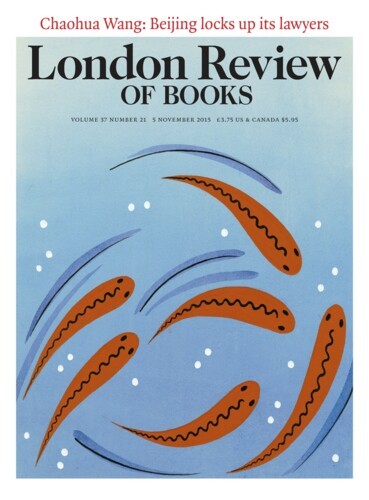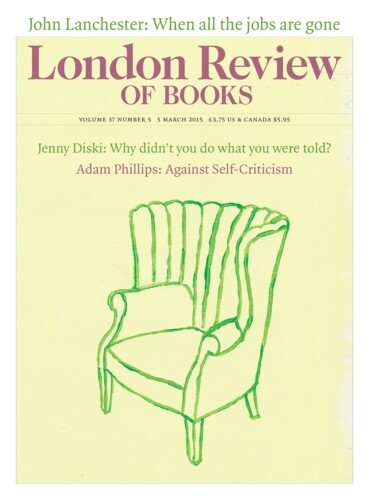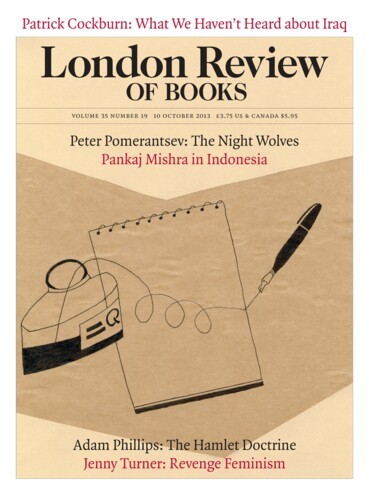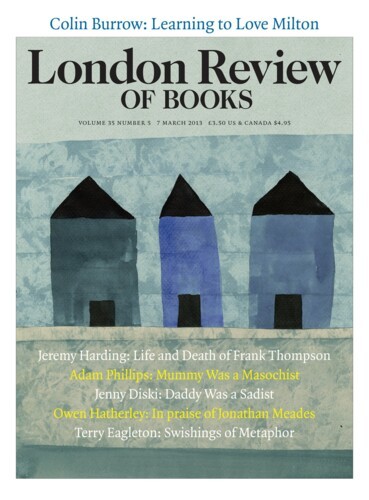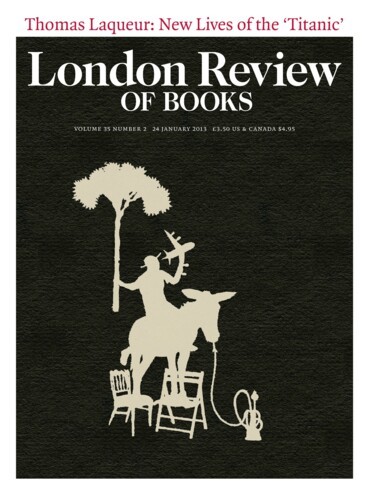I fret and fret: Edward Thomas
Adam Phillips, 5 November 2015
Edward Thomas believed that up to about the age of four what he called ‘a sweet darkness’ enfolded him ‘with a faint blessing’. It was, though, a darkness and the blessing was faint. ‘From an early age’, Jean Moorcroft Wilson writes, Thomas ‘felt cursed by a self-consciousness he believed the chief cause of his later problems and depression’....
